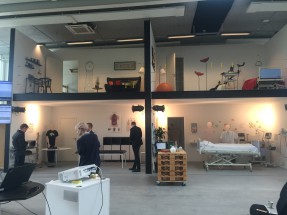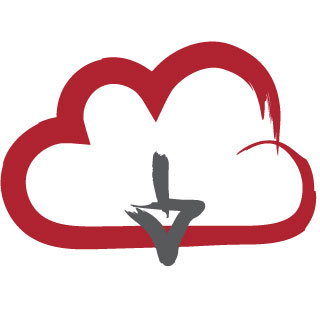
Lessons from abroad

Natasha Egan recently published a story in Australian Ageing Agenda's Technology Review, online magazine, and soon to be published in the hard copy magazine, regarding Community Resourcing's and CORAL's Development Tour in Europe.
Australian community care providers joined an international delegation to tour Europe to learn about cutting-edge consumer-directed technologies and bring back lessons for practice, policy and funding in Australia.
An international delegation of community care professionals toured Switzerland, the Netherlands, Belgium, Denmark and Spain during June and July this year to explore excellence in innovative consumer-directed technologies.
Community Resourcing Worldwide in collaboration with the Community of Regions for Assisted Living conducted three professional development tours visiting the regions of Geneva, Noord Brabant, Flanders, South Denmark and Catalonia, the first of which included the International Conference On Smart Homes and Health Telematics (ICOST) in Geneva in June.
Throughout the tours, delegates had the opportunity to explore practice, policy and funding models with leading experts and change-makers, visit state-of-the-art facilities, see community initiative programs exhibiting innovative approaches to service delivery, and participate in round-table discussions with key industry members.
Three participants share their observations here:
A newcomer’s perspective
By Russell Mason, CEO, Suncare
I started with Suncare on the day I left for the study tour. As a newcomer to the industry, it gave me a lot of insight into a number of reforms flowing through Australia including those based people wanting to live independently and how that helps with health costs.
It also gave me a clear insight into how difficult the development of a digital personal health record is when you think about the amount of data now being created and collected. The issue everyone is grappling with is how much information should be included on your health record, when it should be made available, and to whom.
As part of this international experience I saw the results of a number of reform processes and the business models that have been developed. I am now able to see how these models could be built into the Australian system to assist delivering better healthcare while at the same time, delivering it to better value for every dollar that is put into independent living, aged care, disability care and mental healthcare.
I also saw how a concept such as a living lab, which is like a clinical trial for technology, works and how that could be utilised in Australia. In places like the Sunshine Coast and the Gold Coast we have a population that is adopting new technology and has the ability to pay. We have the ability to create living labs where we can test cutting-edge technology. That’s an opportunity for us as a country and providers, such as Suncare, as a business.
A tour learning that has broader implications for smarter delivery of aged care is the general desire of people as they grow older, and those with a disability, to be integrated with, not segregated from, the community. Denmark, Barcelona, and Holland all have this integrated way of life. When you buy an apartment you don’t at some particular time have to make a decision to go somewhere else into an aged care facility. It is all part and parcel of the community and the way that you are looked after.
We as a sector and industry need to ensure we consider that when building new infrastructure. That includes the smart technology available now that can link everybody via Wi-Fi, the internet and the internet of things and how that could be included in homes so that when people need a little bit of extra assistance there are technological aids available to assist them.
A CIO’s perspective
By Jeff Carson, CIO, RDNS
Remember ‘Towards 2000”, the TV series that aired late last century, giving us a look at how mind-stretching gadgetry and technology would assist the world in the future? In some ways ICOST Geneva was a real-life, 21st century version of the show. Indeed, a peek into the future – or seeing what might be possible – was a key component of the study tour. The trip opened my eyes to the future of smart home and assistive technologies.
Of the many highlights for me was the work of the team from SmartCardia, which operate out of Lausanne. They have developed a small lightweight hand-held sensor that monitors the heart (ECG), breathing and stress levels — sending the information to a smartphone.
The SmartCardia team claim that by using the combination of these biological signals you can infer the overall physical health of the user. My excitement was then tempered by the realisation that sports and leisure is the market for this device. Getting it to the standards required for clinical use can add as much as two years to the process. However, Irrespective you get a sense of wearable health tech in tomorrow’s world.
The ICOST conference was thought provoking. Trials around passive monitoring in the home interested me most. The stand-out presentation was none other than our own CSIRO, notably on their work into passive monitoring, in partnership with University of Sunshine Coast and Community Resourcing. They illustrated a person walking around the house in real time using game technology to first build a house (like in the SIMs game) and an avatar to represent the client. This provides a view of activity without resorting to video capture but still gives insights into daily activity in the home. RDNS is now in discussions with CSIRO about how we can adopt this technology into our service offering.
The tour highlighted for me the great opportunity to engage the wealth of research and development around the world to improve not only our technology in Australia but also our thinking. Australia is well placed when you consider what was demonstrated at the conference and what RDNS and our key partners, Telstra Health and CSIRO, are currently developing.
There are great opportunities to incorporate leading-edge research and development into the Australian market. The examples the delegation investigated throughout Europe showed the importance of multi-faceted relationships between aged care providers, researchers and developers as well as policymakers and funders. These relationships, in turn, bring innovations into the provision of services.
UK provider perspective
By Edward Hughes, Riverside, a social housing provider
The Delivering Assisted Lifestyles Living At Scale (DALLAS) Programme has been innovative in that it brought together partners from health, housing, the third sector and technology, which historically have not always been at the same table.
Liverpool’s DALLAS programme has been a catalyst for change in the city and we are now seeing a more connected approach to supporting people to remain independent. This is similar to the city region approach that we saw in Catalonia. Over time we will see a more community-based approach to care in Liverpool and it is essential that our range of partners continue to work closely together in order to achieve the best outcomes for our population.
Within the UK, telecare is very much a responsive service where staff react to the situations they are presented with. What was really interesting from the trip to Tunstall in Barcelona was their proactive approach to making outbound wellbeing calls. Their focus was very much about prevention which will be really important as we move to more community-based models of care in the UK. Riverside will be looking to work with Liverpool Clinical Commissioning Group to review our approach to telecare and how we can follow a similar model.
As one of the largest housing associations in the UK, Riverside supports residents across the whole country. As we strive to improve our service offering that can meet the needs of an ageing population, it is really important to take time to review best practise. For us, the Community Resourcing tour was a great opportunity to see what is going on other countries and how our ‘partners’ are using innovative approaches to tackle the similar challenges. It is our desire to maintain an open dialogue with Community Resourcing so we can continue to learn and share best practise in the future.
An extended version of this article appears in the current issue of Technology Review magazine (September).
You can view the online article at; http://www.australianageingagenda.com.au/2015/10/26/lessons-from-abroad/
Posted on 04 / 11 / 2015
· Future Trends & Possibilies
· International Perspectives
· Smart AT General
· Smart Homes & Environmental Controls
· Assistive Technology
· Digital Health
· Healthcare Community
· Housing
· Independent Living
· Promoting Change
· Self-management
· Telehealth
Comments
 Caleb Slater at 2018-05-31 13:21:40
Caleb Slater at 2018-05-31 13:21:40 test23
Related Resource
by TagRelated Resource
by Category
Category : Smart Homes & Environmental ControlsWebinar: Smart Assistive Technology Driving Changes in Management of Continence |